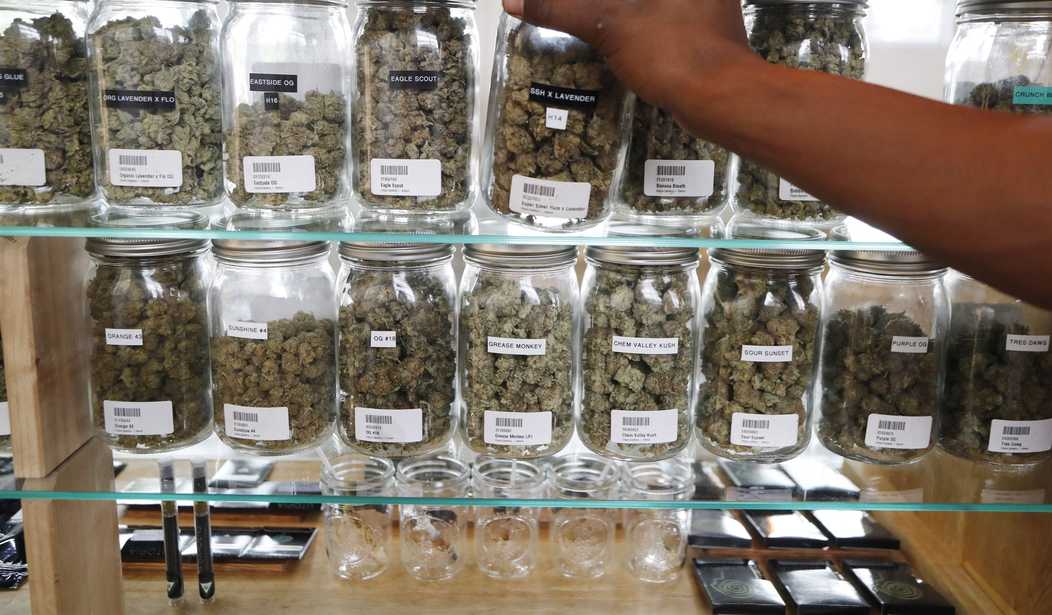In 2012 when states began legalizing recreational use of marijuana, I wrote, "Why compound society’s problems with drugs by legalizing a substance that causes many of the same social problems as booze?"
One of my major complaints at that time was the lack of research into both the casual and heavy use of cannabis. Indeed, the legalization drive was animated by the mantra that "marijuana is harmless" or "it's no worse than booze." We now know that's simply not true in many cases.
Cases of cannabinoid hyperemesis syndrome (CHS), a puzzling gastrointestinal condition that afflicts long-term and frequent use of marijuana, have doubled since legalization. More than 2.75 million Americans each year are afflicted with the syndrome according to National Geographic.
Doctors in Australia were the first to describe the syndrome in 2004. In the U.S. and Canada, emergency department visits relating to CHS doubled from 2017-2021.
Recent studies show the rise in cases is directly related to the increased availability of very potent cannabis in states that have legalized recreational use. “The cannabis that’s available now is much more potent than what was available 30 years ago,” says Deepak Cyril D’Souza, a professor of psychiatry at the Yale University School of Medicine and director of the Yale Center for the Science of Cannabis and Cannabinoids.
The ditch weed we used to smoke in the 1970s was 2%-4% potency of THC. Today's state-authorized cannabis is up to 35% potency. Obviously, I was born 50 years too late.
The syndrome affects frequent, long-term users. But not all frequent (daily or several times daily) users ever get sick while some regular users can smoke for years and not get CHS until they do.
Why are some cannabis users more susceptible to CHS than others?
The human body has an endogenous (internal) cannabinoid system that regulates many critical bodily functions, including learning and memory, pain perception, and immune function. It’s comprised of cannabinoid receptors (mainly in the brain and throughout the gut) that respond to signals from the body, as well as compounds known as endogenous cannabinoids that are similar to those found in the cannabis plant.
CHS may be related to an imbalance in the body’s communication system—the hypothalamic-pituitary-adrenal (HPA) axis—which regulates stress responses,” says Andrews. “The [brain’s] endocannabinoid system modulates the stress response, and cannabis makes that pendulum swing further one way than the other,” which can trigger symptoms.
There also may be a genetic susceptibility to CHS, and depression and anxiety are common in people with the syndrome. “The paradox of this is we don’t understand what’s triggering this in a particular moment,” says David Levinthal, director of the Neurogastroenterology and Motility Center at the University of Pittsburgh Medical Center. Among the leading suspects, he says, are lack of sleep and intense stress.
“This can be a severe condition that can cause complications if it’s not treated,” says Maria Isabel Angulo, an assistant professor of internal medicine and pediatrics at the University of Illinois in Chicago. Complications can include "severe dehydration and electrolyte imbalances, which can lead to kidney injury, heart rhythm abnormalities, and seizures," according to National Geographic.
Christopher N. Andrews, a clinical professor of gastroenterology at the University of Calgary explains the difficulty in diagnosing CHS.
“The way to make the diagnosis is to come off cannabis, proving retrospectively that it’s the cannabis [that was causing the symptoms],” Andrews explains. Easier said than done for most potheads.
It's not that the THC in marijuana is addicting. However, the way that marijuana alters brain chemistry leads to a behavioral addiction like gambling or overeating. Trying to overcome the need to get high is just as hard as trying to quit chasing the next big score.
“People with CHS often report temporary relief of symptoms from bathing in hot water, which may lead to compulsive bathing,” Angulo says. This suggests that the part of the brain that controls body temperature — the hypothalamus— may play a role in the syndrome.
We're never going to "recriminalize" marijuana." It wouldn't help anyway. But people need to be made aware of the risks, the same as they would for any other drug.
“Clearly, we need to study this more,” Professor D’Souza says. I would have hoped that studying CHS before we legalized pot might have been the smart thing to do.










